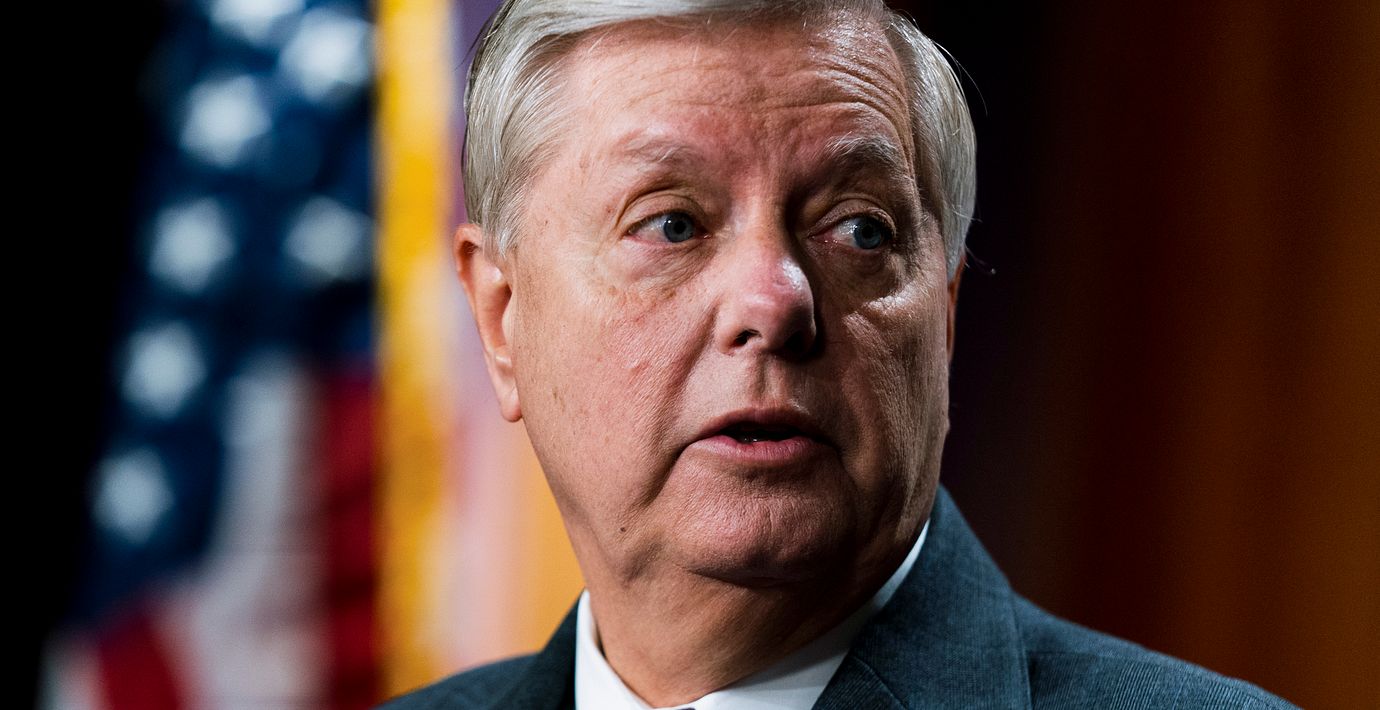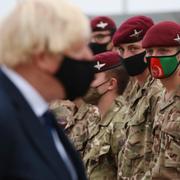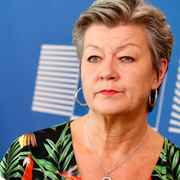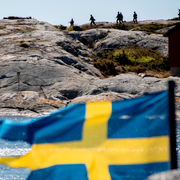
Graham: Terrorhot kommer tvinga USA att återvända
Den republikanske senatorn Lindsey Graham tror att amerikanska styrkor kommer att behöva återvända till Afghanistan inom en överskådlig framtid. Det säger han i en intervju med BBC.
– Vi kommer att vara tvungna för hotet (från terrorismen) kommer att vara så stort.
Särskilt stort är hotet från al-Qaida, menar Graham.
De sista amerikanska trupperna lämnade Afghanistan för en vecka sedan, efter att USA haft 20 års närvaro i landet.
bakgrund
Kriget i Afghanistan
Wikipedia (en)
The War in Afghanistan was a conflict that took place in Afghanistan from 2001 to 2021. It started with an invasion by the United States and its allies, following the 9/11 terror attacks, that toppled the Taliban-ruled Islamic Emirate of Afghanistan to deny al-Qaeda a safe base of operations in the country. For most of the war, the fighting was between Taliban insurgents that opposed allied NATO and Afghan Armed Forces. The Taliban regained power 19 years and 8 months later after defeating the Afghan Armed Forces following the withdrawal of most NATO forces. It was the longest war in United States history, surpassing the Vietnam War (1955–1975) by roughly five months.
Following the September 11 attacks in 2001, George W. Bush demanded that the Taliban, then-de facto ruling Afghanistan, hand over Osama bin Laden. The Taliban's refusal to extradite him led to Operation Enduring Freedom; the Taliban and their Al-Qaeda allies were mostly defeated in the invasion phase by US-led forces, and the Northern Alliance which had been fighting the Taliban since 1996.
After the initial objectives were completed, a coalition of over 40 countries (including all NATO members) formed a security mission in the country called International Security Assistance Force (ISAF, succeeded by the Resolute Support Mission (RS) in 2014) of which certain members were involved in military combat allied with Afghanistan's government. The war mostly consisted of Taliban insurgencies fighting against the Afghan Armed Forces and allied forces; the majority of ISAF/RS soldiers and personnel were American. The war was code-named by the US as Operation Enduring Freedom (2001–2014) and Operation Freedom's Sentinel (2015–2021).At the Bonn Conference, new Afghan interim authorities (mostly from the Northern Alliance) elected Hamid Karzai to head the Afghan Interim Administration. The United Nations Security Council established the ISAF to assist the new authority with securing Kabul. A nationwide rebuilding effort was also made following the end of the Taliban regime.Meanwhile, the Taliban reorganized under Mullah Omar and in 2003 launched an insurgency against the new Afghan government. Insurgents from the Taliban and other groups waged asymmetric warfare with guerrilla raids and ambushes in the countryside, suicide attacks against urban targets, turncoat killings against coalition forces and reprisals agains perceived collaborators. The Taliban exploited weaknesses in the Afghan government to reassert influence across rural areas of southern and eastern Afghanistan. Violence escalated from 2007 to 2009.; ISAF responded by massively increasing troops for counter-insurgency operations to "clear and hold" villages. Troop numbers began to surge in 2009 and continued to increase through 2011 when roughly 140,000 foreign troops operated under ISAF and US command in Afghanistan.Following the killing of Osama bin Laden in 2011 (the original causus belli), NATO leaders commenced an exit strategy for withdrawing their forces On 28 December 2014, NATO formally ended ISAF combat operations in Afghanistan and officially transferred full security responsibility to the Afghan government. The NATO-led Operation Resolute Support was formed the same day to assist in consolidating the newly transferred responsabilities.Unable to uproot the Taliban through military means, coalition forces turned to diplomacy to end the conflict. These efforts culminated on 29 February 2020, when the United States and the Taliban signed a conditional peace deal in Doha which required that US troops withdraw from Afghanistan within 14 months so long as the Taliban cooperated with the terms of the agreement not to "allow any of its members, other individuals or groups, including Al Qaeda, to use the soil of Afghanistan to threaten the security of the United States and its allies". However, insurgents belonging to al-Qaeda in the Indian Subcontinent and ISIL-K continued to operate in parts of the country. The Afghan government was not a party to the deal and rejected its terms regarding release of prisoners. After Joe Biden became president, he moved the target withdrawal date later, from 1 May 2021 to 11 September, before moving it forward, to 31 August. The Taliban, after the original deadline had expired, and coinciding with the troop withdrawal, launched a broad offensive in which they captured most of Afghanistan, finally taking Kabul on 15 August 2021. The same day, the president of Afghanistan Ashraf Ghani fled the country and the Taliban declared victory and the war over. On 16 August, Biden confirmed the Taliban takeover, and on 30 August, the last American military plane departed Afghanistan, ending 20 years of western military presence in the country..
Following U.S. withdrawal, around one thousand U.S. citizens and Afghans holding U.S. or other visas were held stranded by the Taliban.
According to the Costs of War project at Brown University, the war killed 176,000 people in Afghanistan; 46,319 civilians, 69,095 military and police and at least 52,893 Taliban fighters. According to the UN, after the 2001 invasion, more than 5.7 million former refugees returned to Afghanistan. However, since the renewed Taliban offensive of 2021, 2.6 million Afghans remain refugees or have fled, mostly to Pakistan and Iran, and another 4 million Afghans remain internally displaced persons within the country.
Omni är politiskt obundna och oberoende. Vi strävar efter att ge fler perspektiv på nyheterna. Har du frågor eller synpunkter kring vår rapportering? Kontakta redaktionen


